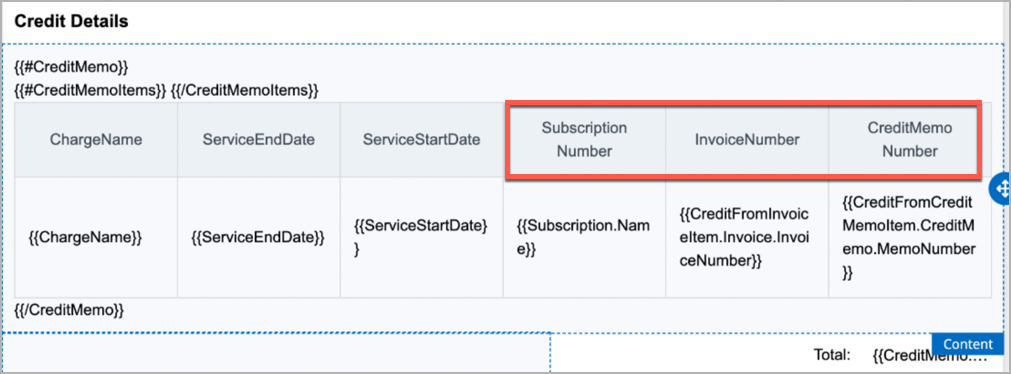Zuora Release 2023.09.R1
Welcome to the release notes for Zuora Release 2023.09.R1. This article is a consolidated page of release notes for the following Zuora products:
For the latest release notes of Zuora Revenue, see Zuora Revenue release notes.
Release schedule
To receive notifications about releases, join Release Notifications in Zuora Community. For the planned release schedule, see Zuora Release Management.
Zuora Billing
 Orders and Subscriptions
Orders and Subscriptions
Display recently added products in search field
For Orders Harmonization and Orders tenant users, you can now choose one of your recently added products by placing your cursor in the search field while performing the Create Subscription or Add Product order action. We display a maximum of eight of your recently added products in a list.

Note that the recently added products mean the products you selected and then clicked Add Product in the bottom right corner in your previous order actions, no matter whether your previous order actions are completed. You can still see the list of the recently added products even if you log out and log in again.
Support for retrieving orders by status
You can now retrieve orders by status through the status query parameter in the following operations:
You can set the status query parameter to an order status to retrieve orders in that order status. If you do not set a value for this query parameter, the query parameter has a default valueall, and orders of all statuses are returned.
Enhancement on reinvented subscription details page
We can now record your last expanding or collapsing action to each section on the reinvented subscription details page, for example, the Included Products section. Even if you log out and log in again, when you visit a section, the section is displayed as expanded or collapsed according to the record.
Enhancement on preview start date on reinvented subscription details page
When previewing a subscription from the reinvented subscription details page, you can now specify the Preview Start Date field with one of the following options:
- Start of Term (Default option)
- Today
- Specific Date
For more information, see Preview subscriptions.
 Usage and Rating
Usage and Rating
New field available in rollover fund
A new field rolloverPeriodLength is available to define the period length of the rollover fund.
For more information, see Create prepayment charge with rollover and API Changelog for a summary of the related API changes.
 Invoicing and Tax
Invoicing and Tax
New billing rule for previewing tax information
A new billing rule called Enable tax preview with external tax engines during generation of invoice and credit memo is now available to allow a tax preview with external tax engines during the generation of invoices and credit memos.
If you have the Invoice Settlement feature enabled, this rule helps determine the document type (invoice or credit memo) and prevents the creation of negative billing documents.
For more information about this billing rule, see Define billing rules.
Numerical prefixes available for billing documents
You can now use entirely numerical prefixes for billing documents. The prefix can also end with a number, for example, 2023 or INV2023.
Note that this enhancement applies only to billing documents, including invoices, credit memos, and debit memos.
For more information, see Configure prefix and numbering for billing documents.
Reinvented bill run details page available in Sandbox environments by default
You can now access the reinvented bill run details page in all Sandbox environments by default.
The redesigned bill run details page has a modern look and feel, along with several enhancements and functionalities. See the following key highlights:
- The page is organized into tabs for improved navigation and ease of use.
- Rebilling failed accounts becomes simpler and more efficient.
- Summary section: This section provides a clear overview of the results, making it easy to find critical information.
- Associated Bill Runs section: All instances of executed bill runs for a scheduled bill run are consolidated on a central page. You can easily track processed accounts and billing documents.
- History section: A comprehensive bill run history is included, which shows the timeline of user operations and bill run status changes.
For Sandbox environment, the reinvented bill run details page is enabled by default. If you want to switch back to the old bill run details page, click the more options icon, and then click Back to the Original Bill Run View.
For Production environments, the existing bill run details page is still enabled by default. To access the reinvented page, click the "Go to the new bill run page" link at the top of the existing bill run details page.
Increase of limit on number of account batches
You can now utilize up to 200 account batches within Zuora Billing. This enhancement provides you the great flexibility to manage your accounts during bill runs or payment runs. For example, you can categorize batches by country and channel, or you can arrange your accounts based on billing cycle days and frequencies.
By default, you have 50 configurable account batches. To increase the limit to 200 batches, you must have the Performance Booster Elite package.
For more pricing information, see Zuora Editions and Zuora Modules.
Currency field available on more objects in exports and Data Query
The Currency field is now available on the Invoice, Credit Memo, and Debit Memo objects through data source exports, Aggregate Query API (AQuA), and Data Query. The supported version is 137.0 for this field.
With this enhancement, you can export reports containing currency information on invoices, credit memos, and debit memos through data source exports.
Billing Schedule supports posting billing documents on invoice schedule details page
With the Billing Schedule feature, you can now directly post a draft invoice or credit memo from the invoice schedule detail page.
To achieve this goal, perform the following steps:
- On the invoice schedule detail page, click the invoice or credit memo number in the Billing Document column of the Schedule Items section.
- In the displayed confirmation dialog, click Post.
When posting an invoice, you can also update the invoice date.
Billing Schedule supports configuring custom fields for invoice schedules through Zuora UI
When managing invoice schedules through the Zuora UI, you can now specify and view customer fields on the Invoice Schedule and Invoice Schedule Item objects.
To access this enhancement, create custom fields on the Invoice Schedule and Invoice Schedule Item objects first through the Zuora UI. When you create an invoice schedule, these custom fields are available for both the Invoice Schedule and Invoice Schedule Item objects.
Custom fields provide more flexibility and functionality to your invoice schedules. For example, you can use them to store descriptions for project milestones. Additionally, you can store Purchase Order Numbers (PO#) for each schedule item.
The REST API support for configuring custom fields for invoice schedules and invoice schedule items has been available since the 2023.06.R2 Release.
Job Scheduler is now available to populate the default natural key
Zuora's Job Scheduler fills in data to populate the default natural key for document templates and sequence sets that were configured prior to the availability of the natural key field.
For more information, see the release note updates for natural key support for billing document template objects in 2023.08.R1.
GroupBy function in HTML templates now has support for six arguments
Previously, the GroupBy function was limited to a maximum of 3 arguments. You can now group InvoiceItems by to a maximum of six arguments. For example,
- Subscription
- ProductRatePlanCharge.ProductExternalName__c
- ServiceStartDate
- ServiceEndDate
To apply GroupBy function, use the syntax
GroupBy(Subscription, ProductRatePlanCharge.ProductExternalName__c, ServiceStartDateServiceEndDate)
HTML template now shows invoice information on credit memo PDF
Previously, credit memos had to be linked to an invoice for customers to obtain the invoice number for a credit memo. HTML templates now show the association between credit memo items and invoices in Credit Memo PDF, with specific details such as dates, charges, subscription, and invoice number.

Zuora Payments
 Payments
Payments
Auto-unapply payment on cancellation
Zuora now offers you the ability to automatically unapply a payment from a billing document when the payment is canceled. For more information, see Unapply Payment on Cancellation.
Support for asynchronous payment processing
To reflect the accurate statuses of asynchronous payments, we now support handling electronic direct debits (labeled as ACH and Bank Transfer in Zuora) with asynchronous payment statuses. The Pending payment status is introduced to indicate that transactions are awaiting settlement confirmation.
With this feature enabled, after you create electronic ACH or Bank Transfer payments through the UI or REST API operations for creating payments or payment runs, the payments are in a Pending status upon successful network communication with the gateway. To transition from a Pending status to another status, use one of our Gateway Reconciliation options or cancel the payment.
Previously, these same transactions were logged in a Processed status upon successful network communication.
This feature is in the Early Adopter phase. We are actively soliciting feedback from a small set of early adopters.
For more information about the Asynchronous Payment Statuses feature, see Electronic Payment Processing.
Domain registration for Apple Pay through Zuora UI and REST API operations
For the implementation of the Apple Pay checkout experience by using Zuora’s JavaScript SDK, you can now register your domain with Apple Pay and manage the domains through either of the following methods in a self-service manner:
- On the Hosted Pages page in the Zuora UI, a new E-Wallets tab is available, where you can download the domain-verification file, register your domains that will show the Apple Pay button, and manage your registered domains.
- Use the following REST API operations:
Previously, you had to submit a request to Zuora Global Support to register and manage your domains.
For more information, see Set up Apple Pay through the JavaScript SDK approach.
Support for passing fraud screening amount for Chase Paymentech Orbital Gateway integrations
For Chase Paymentech Orbital Gateway integrations, if the Safetech Fraud service is enabled, you can now use the screeningAmount field to pass in the amount used for fraud screening for Credit Card validation transactions. You can specify screeningAmount through any of the following approaches:
- The client parameter of a hosted payment page
- The following REST API operations:
If the screeningAmount field is not specified, the authorization amount is used for fraud screening as before.
Deprecation of Amazon Pay gateway integration
In December 2023, we will deprecate the Amazon Pay gateway integration and payment method option. From now on, you can no longer enable the Amazon Pay gateway integration if it is disabled. If you are using this integration, your existing integration can still work properly, but please switch to an alternative payment gateway integration and payment method before December 2023.
For more information about payment gateway integrations that Zuora supports, see Supported payment gateways.
If you have any questions about the upcoming deprecation, contact Zuora Global Support.
Support for passing customized metadata to Adyen in 3DS2 requests
We have enhanced Adyen Integration v2.0 to support passing customized metadata to Adyen in 3D Secure 2.0 (3DS2) enrollcheck requests. When a payment is triggered from a hosted payment page with 3DS2 enabled, your customized metadata for the Payment Method object will be sent to the Adyen gateway.
For more information about the customized metadata, see Set up and configure an Adyen Integration v2.0 gateway instance.
Enhancement in passing email information to Mastercard payment gateway
We have improved the logic for populating the customer.email field in the following transactions to the Mastercard payment gateway:
- Credit Card payment requests
- Credit Card Reference Transaction payment requests
Previously, we supported using the email of the payment method to populate the customer.email field and pass it to Mastercard. As an improvement, the customer.email field is set according to the following priority:
- The email of the payment method
- The BillTo work email of the account
- The BillTo personal email of the account
For more information, see Overview of Mastercard payment gateway integration.
Zuora Central Platform
 Custom Objects
Custom Objects
Renaming of Custom Objects section in Zuora UI
We have renamed the Platform > Custom Objects section to Platform > Object Manager in the left navigation menu of the Zuora UI.
The Object Manager serves as a centralized location to manage configurations associated with both custom and standard object definitions.
 Events and Notifications
Events and Notifications
New event parameters available for Order Action Processed event
To align with the Orders feature, we have now added the following values to the Type event parameter of the Order Action Processed event:
- ResumeSubscription
- SuspendSubscription
You can now use all order action types that are supported by the Orders feature in the Order Action Processed event.
For more information, see Standard events for Zuora Orders and Order actions.
 Zuora Warehouse
Zuora Warehouse
Zuora Warehouse available for early adopters
Zuora Warehouse is an elastically scalable data warehouse service provided by Zuora. You can leverage Zuora Warehouse to run high-performance queries on unlimited data volumes.
After enabling Zuora Warehouse, the data in your tenant is automatically synchronized into your Zuora Warehouse account. You can seamlessly query data from Zuora Warehouse in different Zuora features, such as Data Query, Data Source Exports, Workflow, or Reporting. Since Zuora Warehouse has better performance and does not have limitations on the number of input rows, it supports more complex queries and is faster and more efficient.
For more information, see Zuora Warehouse.
The Zuora Warehouse feature is in the Early Adopter phase. If you want to enable this feature, please contact your Zuora account representative. Additional fees apply.
 Zuora Secure Data Share for Snowflake
Zuora Secure Data Share for Snowflake
Data Quality Log available for Zuora Secure Data Share for Snowflake
You can now leverage the DATA_QUALITY_LOG table to monitor the completeness and accuracy of your Zuora data in Snowflake.
Zuora runs a data quality check on each Zuora business object shared with your Snowflake account on a daily basis, and stores the check logs in the DATA_QUALITY_LOG table. Each row in this table represents the result of a data quality check of a specific object. For more information, see Data Quality Log table.
REST API
For the detailed API documentation, see API Reference.
For a summary of REST API updates and documentation updates in the Zuora API Reference, see 2023 API Changelog.
Quickstart API
From 2022.09.R1, the Quickstart API is available to you if you have the Orders (or Order Harmonization) and Invoice Settlement features enabled in your tenant. The QuickstartAPI allows new integrators to swiftly integrate with Zuora, and it supports essential business use cases.
For the detailed Quickstart API documentation, see Quickstart API Reference.
For a summary of REST API updates and documentation updates in the Quickstart API Reference, see Quickstart API Changelog.
SOAP API
Current WSDL version: 136
For information about how to check your version and download the latest version. see Zuora WSDL.
SOAP API change history
For a summary of updates made to the SOAP API in recent Zuora releases, see Zuora SOAP API Version History.

